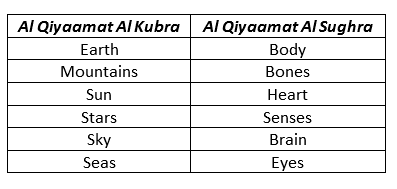Some Observations on Ziyarat Ashura
Introduction The Ziyaraat (visitations) of Ahl al Bayt are precious resources. In addition to developing a relationship between the believers and the Ahl al Bayt, they can help us understand various aspects of reality. They teach us the status of the Ahl al Bayt and we can derive several principles from them. In this article we will discuss some of the lesser discussed aspects of Ziyarat Ashura. 1. The effects of reciting Ziyarat Ashura are perpetual This aspect is repeated throughout the Ziyarah in various forms. For example: عَلَيْكُمْ مِنِّي جَمِيعاً سَلامُ اللهِ أَبَداً مَا بَقِيتُ وَبَقِيَ اللَّيْلُ وَالنَّهارُ Peace of Allah be on all of you, eternally as long as I remain and and there exist day and night. إِنّي سِلْمٌ لِمَنْ سَالَمَكُمْ وَحَرْبٌ لِمَنْ حَارَبَكُمْ اِلى يَوْمِ الْقِيَامَةِ I am at peace with those who made peace with you and at war with those who fought you, till the day of resurrection. In addition to the above, there are other instances where t...


